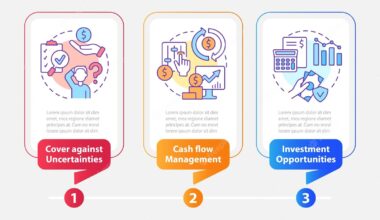What Are the Benefits of Mortgage Insurance?
Buying a property may be exciting. Yet, it may be stressful. Mortgage insurance can help you and your family. Mortgage insurance protects homeowners and lenders against default losses. It protects the lender and homeowner from unforeseen events like job loss, illness, or injury.
In this article, we’ll discuss mortgage insurance’s benefits and how it may provide homeowners and lenders the confidence to make smart financial decisions. This article discusses the many types of mortgage insurance, their fees, and how they can safeguard your investment in the event of a default. We’ll also discuss mortgage insurance’s pros and cons and whether you should acquire it.
What Is Mortgage Insurance?
Mortgage insurance protects the lender if a borrower defaults. Even with a 20% down payment, lenders often need it for FHA loans. If a borrower puts down less than 5% on a property, lenders often require it.
PMI and MIP are the two main kinds of mortgage insurance (MIP). MIPs are required for all FHA loans, however PMI is usually required for loans over 80%. PMI applies at 80% loan-to-value.
Mortgage lenders add mortgage insurance to your principal debt at closing. Hence, making payments eliminates your principal, interest, and PMI or MIP charges.
Keep in mind that this additional expenditure will not improve your home equity. Instead, it decreases your loan balance until you reach 20% equity through payments and market appreciation. It’s time-consuming.
Need Mortgage Insurance?
Mortgage insurance lets potential homeowners buy a home without a large down payment. Mortgage insurance spreads purchasing risk across multiple parties. By letting homeowners borrow more money, it lowers their monthly mortgage payments and helps them save for the future. It also lowers mortgage costs.
When you need Mortgage insurance:
- You’re buying a home with less than 20% down.
- You cannot afford the mortgage insurance starting premium.
- You have money for a down payment yet want a low mortgage payment.
- You’re buying an expensive house to stay inside your budget.
- Mortgage insurance benefits include:
- Modifiable loan terms and interest rates
- Applying is easy
- Guaranteed payment if the loan is not repaid.
- Lower minimum credit score, allowing consumers with poor credit to qualify for the loan.
Mortgage insurance can help you achieve your homeownership goals, whether they be financial security or a first home.
Benefits of mortgage insurance
Mortgage insurance benefits policyholders. Mortgage insurance may protect you from the following homeowner risks:
- Loan-to-Value Ratio Protection
Mortgage insurance protects you if the house’s value falls below the mortgage. This ensures that your house loan will never exceed its worth.
- Safeguarding
Mortgage insurance protects lenders from unexpected events like the borrower’s death or incapacity. Mortgage insurance gives the lender a safety net, making it more likely to approve your home loan.
- Interest Decreased
Lenders provide cheaper loan rates when they know they’re insured in case of an emergency. Because mortgage insurance protects lenders. This tool can save you hundreds of dollars on a mortgage when buying a property.
How Does Mortgage Insurance Work?
Mortgage insurance protects the lender if the borrower defaults. Loans with initial deposits between 5% and 20% of the purchase price require it.
Process:
1.A one-time surcharge is applied to your closing costs when you get the loan.
2.Depending on the loan amount, you may have to pay monthly and annual premiums.
3.Premium payments are usually necessary until the loan principal debt surpasses 80% of the home’s initial assessed value. The insurer is no longer accountable and will no longer collect payments.
4.Mortgage insurance protects lenders from foreclosure. Hence, the lender can recover part or all of its mortgage default losses. This protects their investment and lets them offer homebuyers reasonable credit.
Mortgage Insurance Has Several Types
Private Mortgage Insurance (PMI)
Private mortgage insurance is often required for loans with less than 20% down (PMI). PMI protects the lender from nonpayment. This service charges 0.3% to 1.5% of the loan’s value, depending on your credit score and down payment. Your mortgage payment includes PMI.
MIP (Mortgage Insurance Insurance )
The Mortgage Insurance Premium (MIP) protects lenders from losses if a borrower fails on an FHA-backed mortgage loan (FHA). Most FHA borrowers must pay MIP, which is more expensive than PMI. It is cancellable under certain conditions.
Homeowner’s Insurance Cost
Mortgage insurance might help you buy a property. Click here for details. Mortgage insurance is a big decision that demands thorough evaluation of premium expenses.
Consider the following when calculating mortgage insurance costs:
Typical Monthly Fees
Mortgage insurance premiums are usually included in monthly loan payments. The charge depends on the loan type, size, down payment, credit score, and debt-to-income ratio. Contact your lender for a monthly premium estimate.
Premiums
Some lenders need an upfront fee and recurring payments. The closing premium is usually 0.5 percent to 3 percent of the loan amount. Before signing, ask your mortgage lender about mortgage insurance upfront costs.
Cancel ability
Several mortgage programs let you remove mortgage insurance when you reach 20% equity or pay off the loan. When you accept a loan program that requires mortgage insurance, ask your lender about its cancel ability regulations. Lenders can explain these policies.
Mortgage insurance can provide financial security and peace of mind to homeowners, especially those with lower down payments or credit scores. The premium is a small percentage of the loan amount, but it may still be a considerable expense, so it’s important to weigh the pros and downsides.Mortgage insurance may be a good way to protect your home and provide you peace of mind if you can’t make your payments. If you’re considering a mortgage, you should examine the various mortgage insurance options before making a choice.



